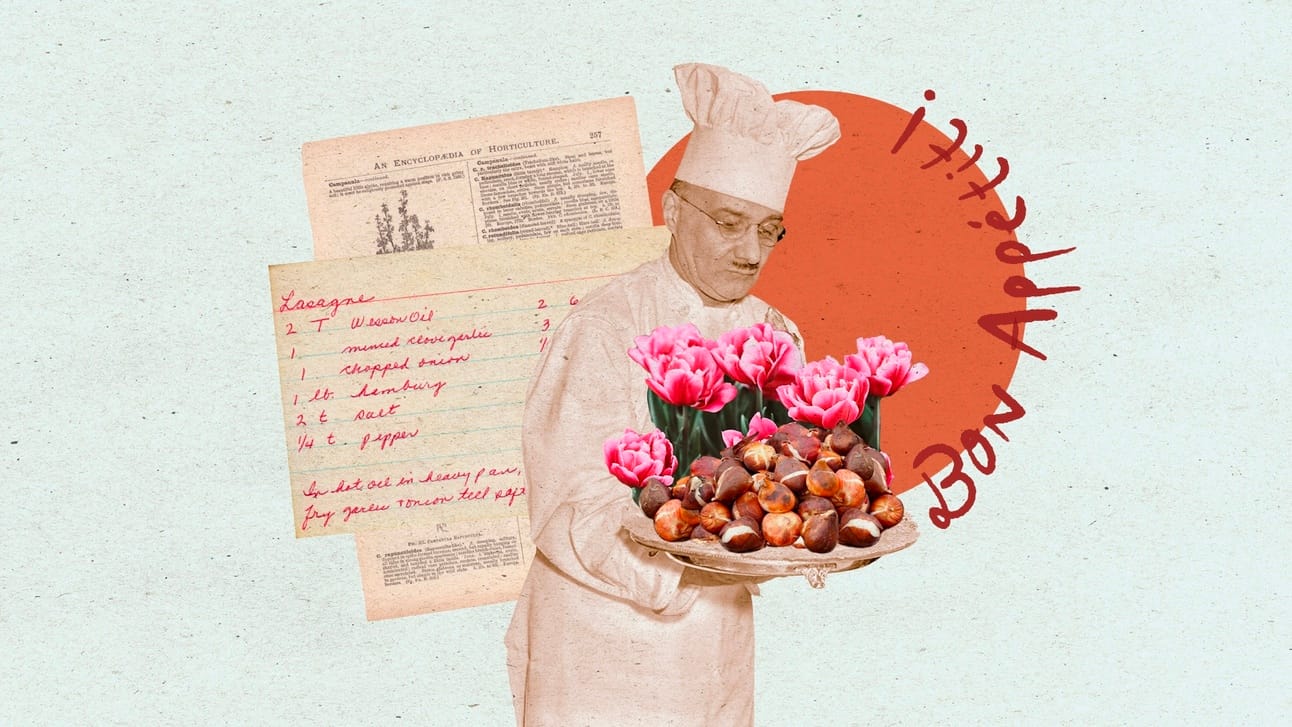- Garden People
- Posts
- 🐝 Issue 31: Spring flower secrets
🐝 Issue 31: Spring flower secrets
It’s a little something called Bulb Lasagna
The fall bulb parade continues—and this week I’m sharing a bulb trick that blew my mind.
It’s a technique for planting spring blooms in flower pots called “bulb lasagna.”
Bulb lasagna?
Yep, you read that right!
Also known as “bulb layering,” it refers to layering different types of flower bulbs in one large flower pot.
The result is one flower pot with a sequence of blooms continuously through spring. This is an extra special feat, considering almost no spring flower blooms the entire season.
How it works
Bulb lasagnas are remarkable because of how the bulbs navigate growth.
At first glance, it might seem that layers of bulbs would be overcrowded, or that lower layers of bulbs would surely be stunted by upper layers.
But fall bulbs are both hardy and adaptable—they figure it out. Bulbs on the bottom of the pot grow around and through the upper layers, all the flowers making room for the others as they grow.
The key to doing this successfully is planting layers based on the flower’s bloom time.
Understanding bloom times
There are three primary bloom times:
Early spring
Mid spring
Late spring
These bloom times are widely recognized across nurseries and growers. Any bulb you buy will state its bloom time on the package or website description.
(PS. More details on bloom times and sequencing are in the Spring-flowering bulb guide.)
Try it this fall
Here’s what you’ll need:
2-3 layers of flower bulbs. The bottom layer should bloom earliest, and the top layer should bloom the latest. Late-season tulips, mid-season daffodils and earl-season crocuses are a go-to combination, but feel free to experiment.
Flower pot. I’d recommend at least a 12” pot.
Drainage material. This could take the form of rocks, broken up terracotta, or re-used packing peanuts.
Nutrient-rich potting soil
Optional: gravel
Instructions:
Note: Spring-flowering bulbs must be planted in the fall
Place a layer of drainage material at the bottom of the pot.
Add a layer of potting soil, about 8” deep. Optional: Mix gravel into your potting soil to increase drainage
Add the first layer of bulbs—the latest-flowering ones of the mix. Place them close together, but not touching—the space between should be about the width of the bulb.
Add 3-4” of potting soil over top, then plant your middle layer. Use the same spacing rule as the first layer—about a bulb’s width apart.
Add soil over top, until the surface is fairly close to the top of the pot (a few inches below the rim). Place your final layer—the smallest bulbs of the bunch. Press them into the soil surface, and cover with a final thin layer of soil.
The pots can live outside through the winter, but need protection from deep freezes. Cover them with hay or bubble wrap to keep protected. Alternatively, leave them in a cold but protected place, like a garage, until February.
The show begins in late winter or early spring, depending on your top layer of bulbs. When the pot finishes booming, remove the bulbs and store them for next year, plant them in the garden, or just keep them in their pot for next year!
Find tongues in trees, books in the running brooks, sermons in stones, and good in everything.
📚 What I’m reading
My copy of The Overstory by Richard Powers just arrived. All I know is that it’s a novel all about the wonder of trees. Which is all I really need to get excited about it!
🍄 What I’m inspired by
I’ve been looking deeper into the works of Hieronymus Bosch. And if you know his work, you know the depths of it know no bounds.
Something that strikes me with Bosch is how fantastical and absurd his subject matter is—not something one would expect from his time (late 15th century/early 16th century).
I bet he would have been fun to have a coffee with.

A scene from the Temptation of St. Anthony, Bosch, 1501
Have you ever planted a bulb lasagna before? Are you going to try? Reply and let me know!
xx,
Courtney
